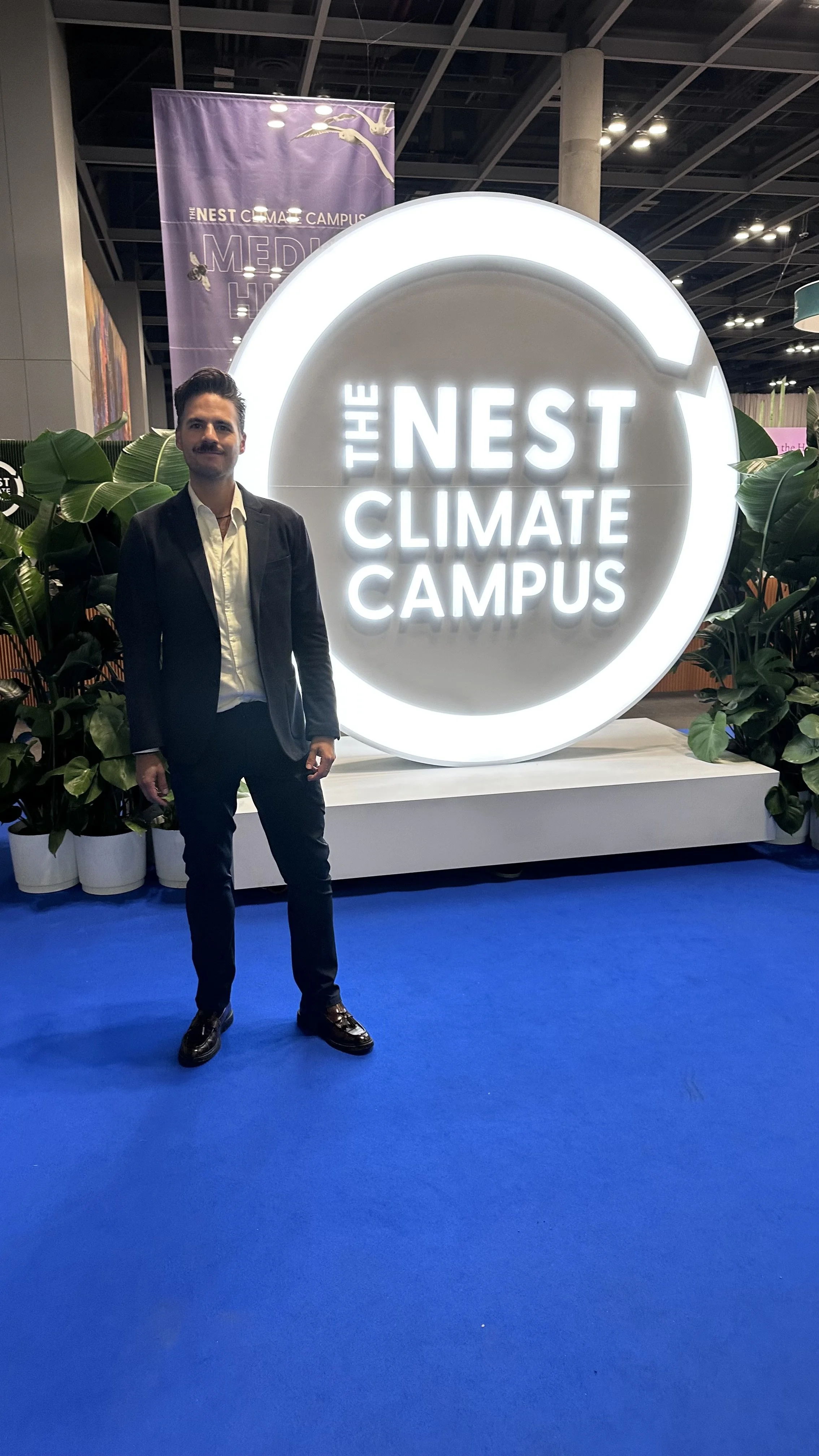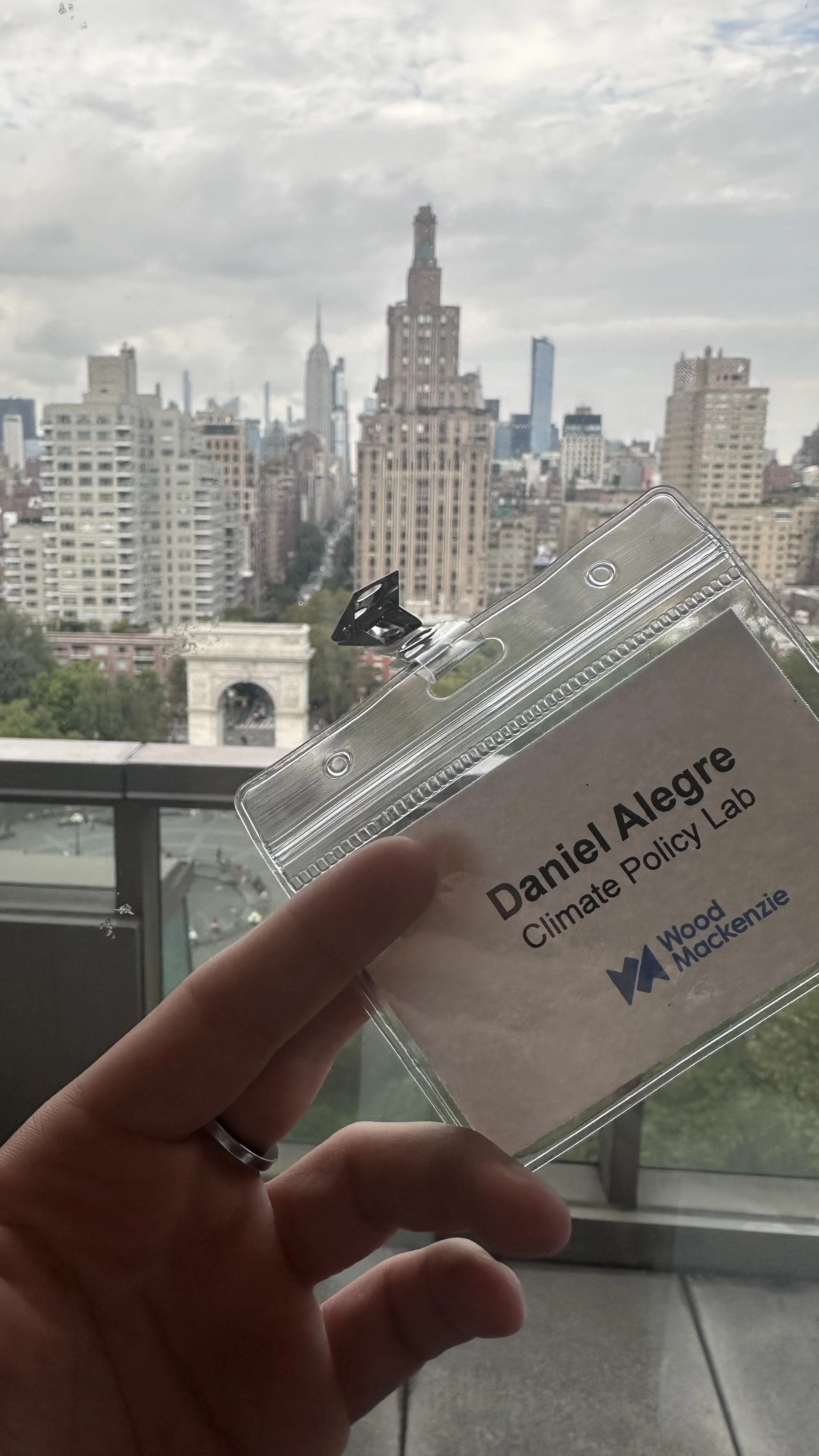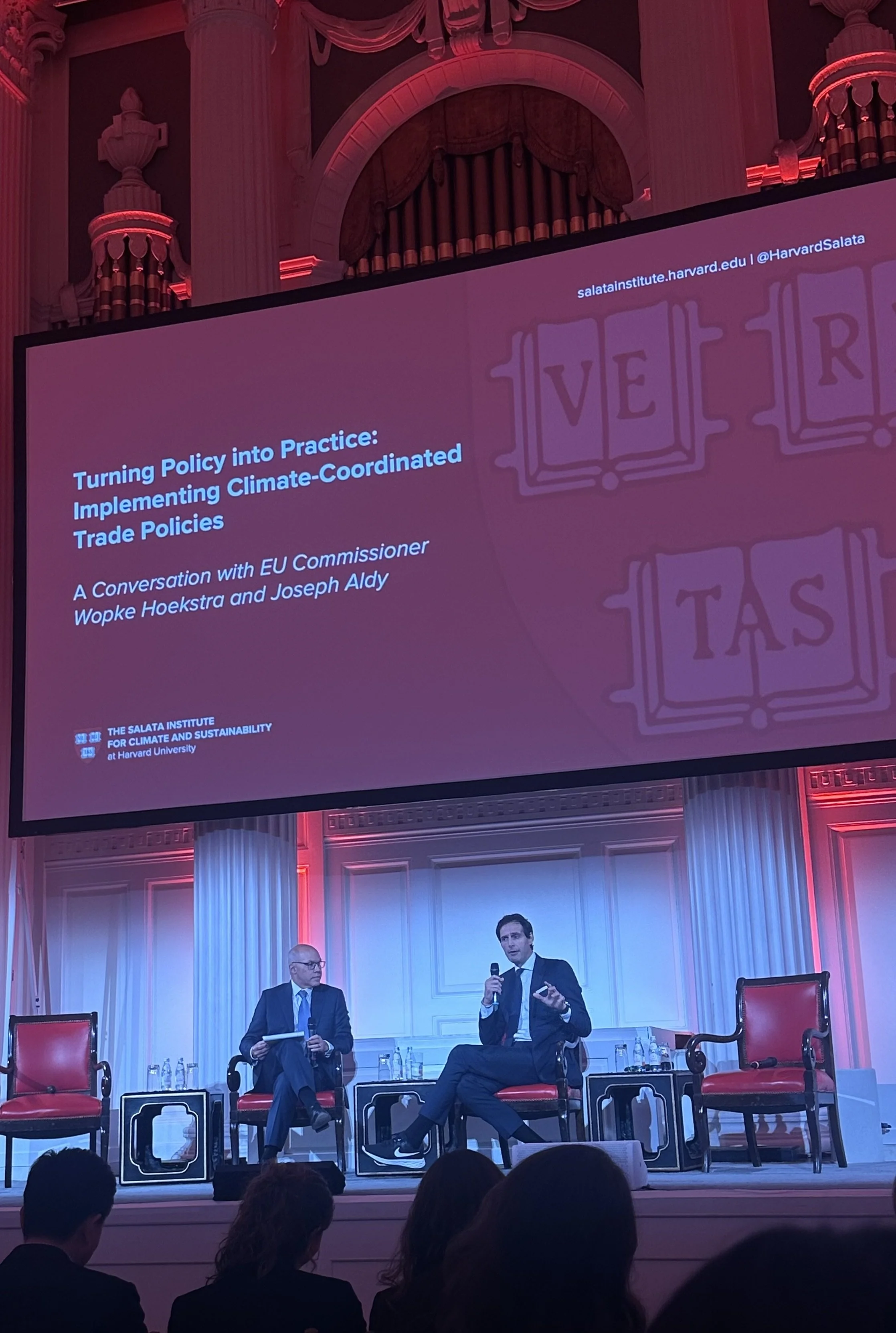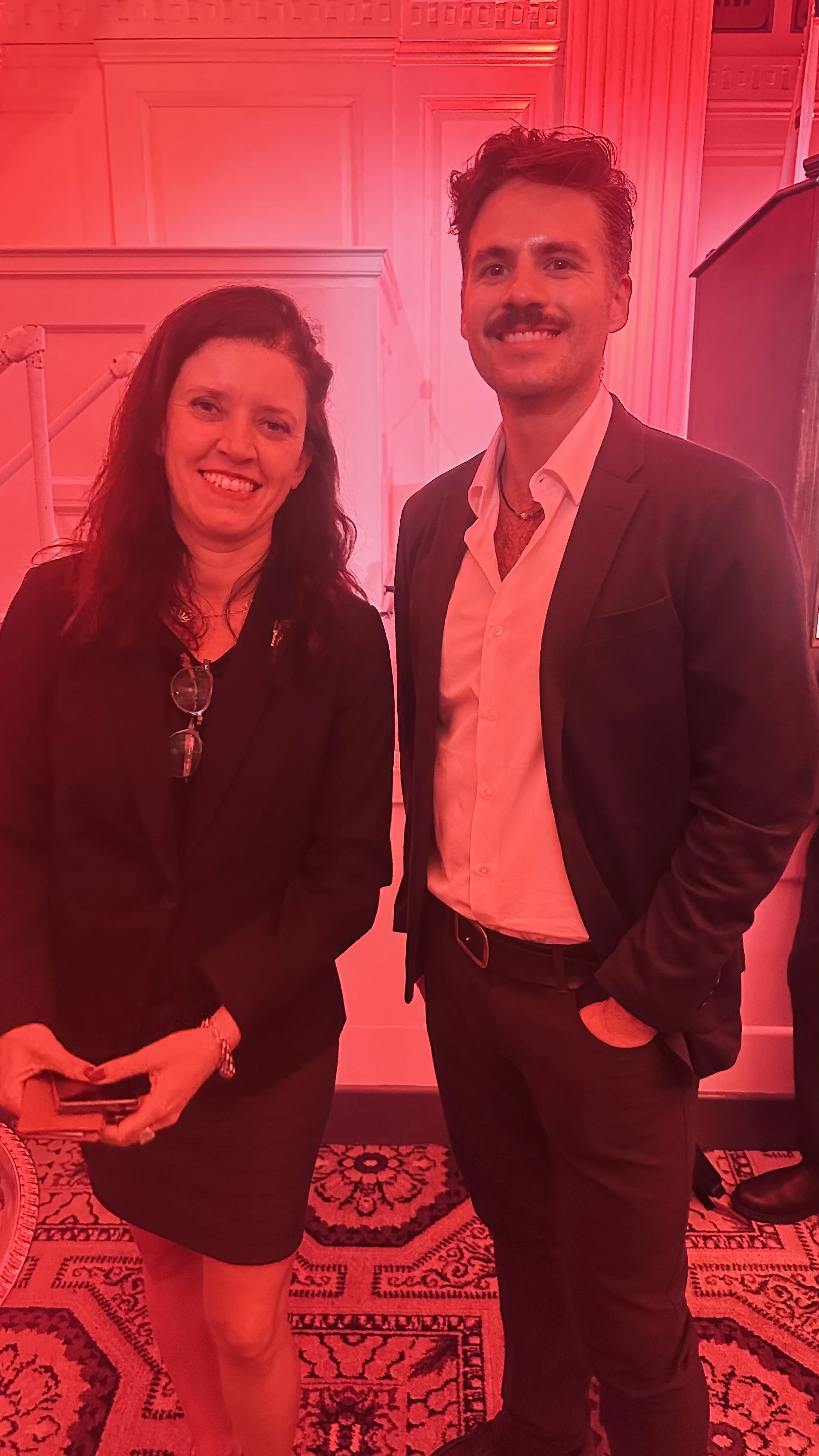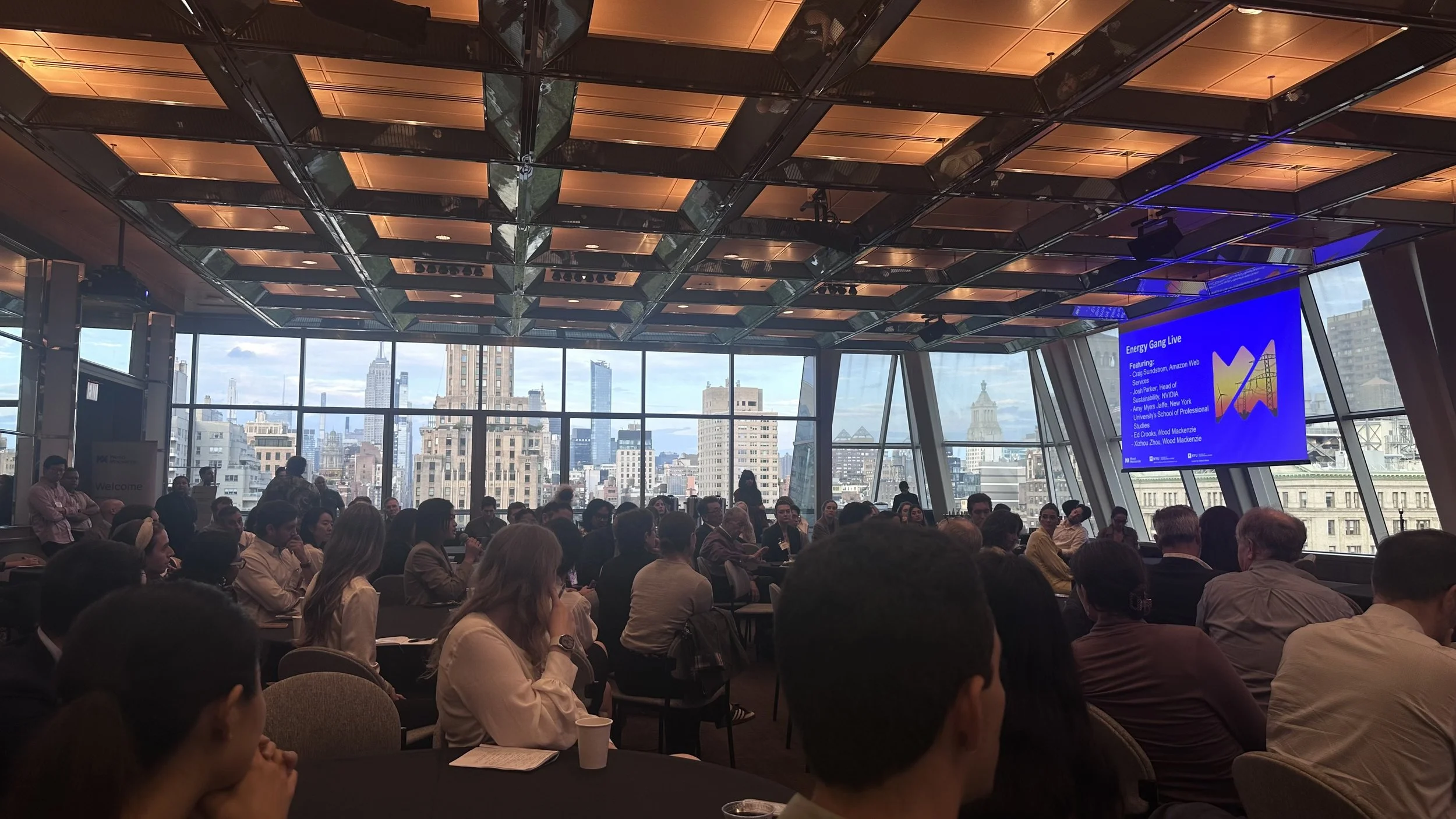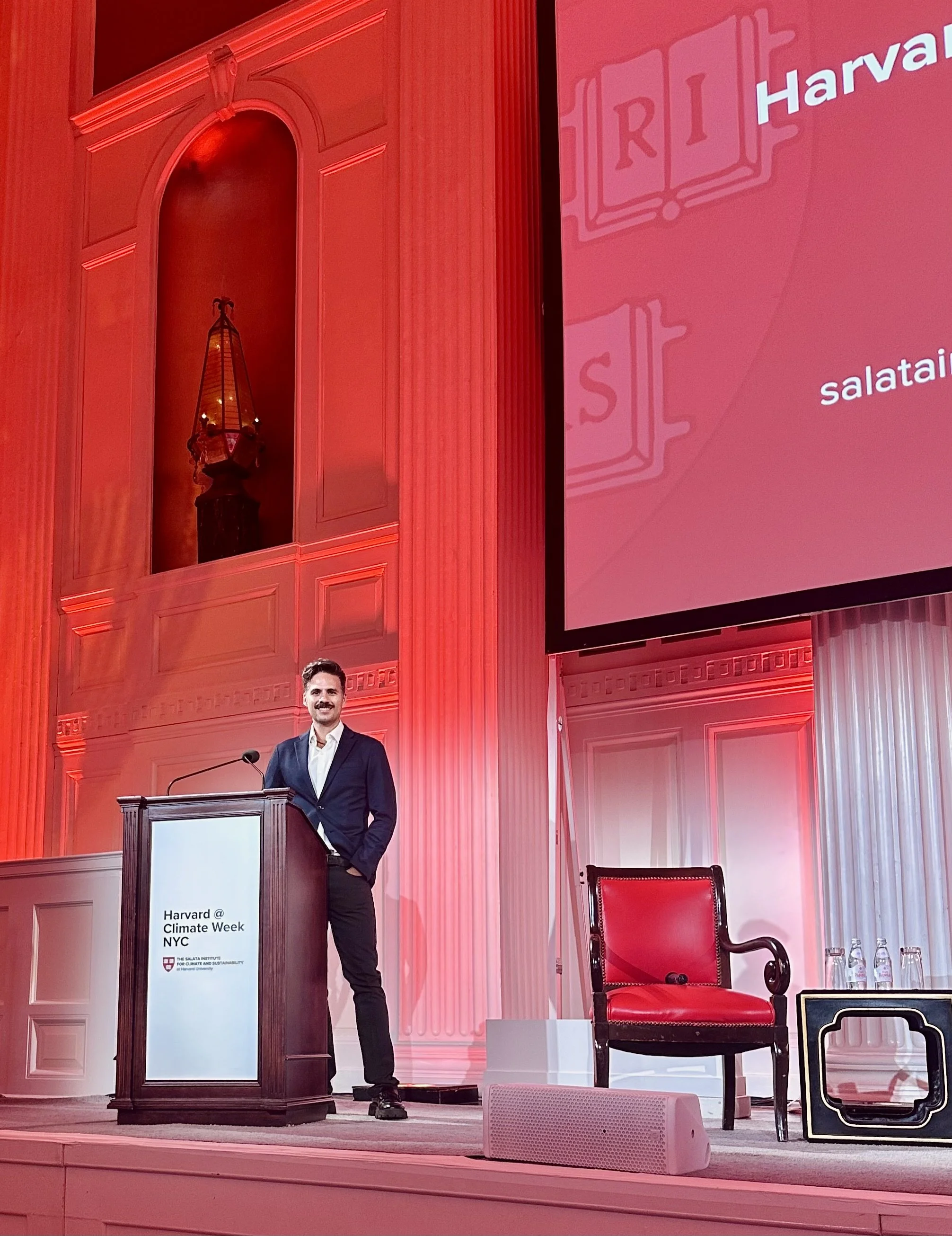Finding Direction in the Noise: What New York Climate Week Taught Me
By Daniel Alegre
This September, I had the opportunity to attend New York Climate Week (NYCW) thanks to the support of the CIERP Travel Fund for Experiential Learning. I had been looking forward to this experience since I first landed at Boston Logan. From the start at Fletcher, I knew I wanted to make the most of my academic journey by engaging directly with the international climate community and bringing classroom concepts into practice. I decided to plan Climate Week for my final semester: a strategic moment to bridge my studies with professional goals in environmental diplomacy and energy policy, and to build momentum heading into COP30 in Belém, Brazil.
What made this experience so unique was the atmosphere that takes over New York during Climate Week. It was my first time attending, and it felt as if the entire city was in sync with climate conversations. From morning briefings to late evening receptions, the corners of Manhattan—and even Bushwick—seemed to host discussions on climate finance, adaptation, AI technology, and leadership. The fact that NYCW coincided with the 80th United Nations General Assembly only amplified its international character. It was remarkable to find myself moving between sessions surrounded by policymakers, CEOs, scholars, and climate advocates all converging on the same themes. Following the contrasting UNGA speeches, the city’s priorities were clear: urgency, innovation, and resourcefulness.
My week officially began at the “Sustainability Soirée,” a networking reception that brought together professionals working across sustainability, energy, and finance. It was an inspiring way to start Climate Week and a reminder of the strength of the Fletcher network beyond campus. There, I met several alumni shaping sustainability strategy in the private sector, including a great group working at the British environmental disclosure organization CDP. This encounter specifically was made possible through CIERP’s active facilitation and connection support through their alumni network.
Among the other events I attended, one that stood out was the Harvard Salata Institute’s Climate Week event, where Professor Joe Aldy led a thoughtful conversation with Wopke Hoekstra, European Commissioner for Climate Net Zero and Clean Growth. Listening to them discuss the EU Carbon Border Adjustment Mechanism (CBAM) offered a firsthand look at how global governance, trade, and environmental finance intersect. This event provided a fantastic and very personal networking experience, since I had the pleasure of reconnecting with Cristina Froes de Borja Reis, the Brazilian Deputy Secretary for Sustainable Economic Development. At the event, we celebrated Brazil’s upcoming presidency and their recent one billion USD pledge to kickstart the Tropical Forest Forever Facilities. This initiative is tied directly to my research interests on sustainable finance and the Global South’s evolving role in international climate negotiations, making it one of my main tracking topics for COP30.
Another highlight was a live recording of the acclaimed “Energy Gang” podcast hosted by Ed Crooks at NYU. The conversation focused on the implications of artificial intelligence for climate action. Hearing insights from representatives of NVIDIA, AWS, and Wood Mackenzie revealed how technology companies are beginning to shape the future of mitigation and energy systems. It was an eye-opening session that linked innovation to the broader climate policy debate, a connection that felt especially relevant given my focus on energy transitions and governance.
As planned, attending New York Climate Week served as an ideal pathway toward COP30 and an invaluable moment to take stock of the themes and actors that will shape global negotiations in Belém. It gave me clarity on what to watch for in the upcoming year: how countries like Brazil position climate finance within broader development agendas, how the EU continues to refine its trade-climate mechanisms, and how private-sector innovation integrates into public diplomacy efforts.
I left New York energized and inspired — grateful for the chance to observe the intersection of ideas, leadership, and action that defines this moment in global climate policy. More than a series of panels, Climate Week became a reminder of why I came to Fletcher in the first place: to learn, connect, and contribute meaningfully to the global effort toward a just and sustainable energy transition.
Daniel Alegre is a Master of Global Affairs candidate at The Fletcher School at Tufts University, with a concentration in International Development and Environmental Policy. A former Foreign Affairs Ministry of Mexico appointee, he recently completed a summer internship with The Nature Conservancy’s Global Agriculture and Food Policy team in Washington, D.C. His work focuses on climate diplomacy, sustainable agriculture, energy transition, and the role of international cooperation . Originally from Mexico City, he is currently based in Boston.

